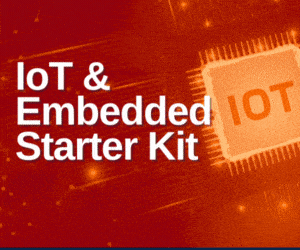The Indian Institute of Science has partnered with Synopsys for a 3-month training workshop — Indian Semiconductor Workshop Development Program — to address the significant global demand for skilled professionals in semiconductor fabs. In a conversation with EFY’s Yashasvini Razdan, IISc Bangalore’s Prof Mayank Shrivastava discussed the program’s objectives and outcomes.
Q. What prompted the need for this semiconductor development workshop?
The upcoming FABs in India, where the government is actively involved, could require tens of thousands of engineers and technicians who’d require high-level, specialised training. Meeting this demand within a few years is challenging, as traditional university programs can only scale up slowly. Recognising this, we initiated a three-month program to provide specialised training to participants with a profound understanding of semiconductor processes within FAB operations. The program, using industry-standard tools like those from Synopsys, focuses on understanding semiconductor technology development and processes within FABs.
Q. What are the program objectives?
We intend to expose 5000 people to the industrial processes of chip design, development, and manufacturing in the next three years by equipping them with fundamental process development skills and giving insight into semiconductor technology development using industry-standard CAD tools.
Q. What skill set will the students of this program be equipped with after completing this three-month program?
The ideal result is that participants can grasp the fundamentals of semiconductor devices, design operations, and industry workflow with proper training. They will acquire proficiency in industry tools for technology and process development, particularly emphasised at the advanced custom level. They will become familiar with the fundamental requirements for entry-level positions in semiconductor FABs. While not at senior levels, they will gain knowledge for day-to-day operations at the initial levels within these facilities.
Q. When you say initial levels, does that mean technicians?
The graduates are more advanced than technicians, but I’m specifically referring to individuals responsible for running and developing processes. There’s a distinction; they won’t be process developers or engineers crafting the technology. Achieving that requires Ph.D.-level training. Instead, they will be equipped to operate, run, and monitor the processes.
Q. What is the difference in training across different levels of the workshop?
Levels one and two are for students — where they don’t need to develop anything but focus on only understanding processes. Level three, the advanced level, is for graduate students and above. In contrast, the fourth level, the custom level, is designed for industry professionals and faculty with at least a master’s level of training and some experience. The advanced and custom levels target individuals at an engineering level who are involved in developing and advancing processes. This higher level of training equips them with the skills needed for their roles. Both levels use the same tool.
Q. So, will the course enable the students to understand the development of a semiconductor chip?
Developing an actual semiconductor chip is a complex process, and in these programs, you learn how the process is developed to build various types of chips and the creation of basic building blocks. Beyond the hands-on and practical aspects covered in theory, you also gain insights into implementation and experimental aspects not typically addressed in theoretical courses. These are skills crucial for industry jobs, but there’s a dilemma – industries seek individuals with these skills, yet acquiring them often requires being in those industries. To bridge this gap, specialised short-term programs are essential, addressing specific industry needs.
Q. Are the courses taught in this program similar to what engineering graduates learn in a regular BTech or MTech program?
In BTech or MTech programs, the learning is primarily theoretical, often limited to textbook knowledge. While you can understand how to implement concepts, the practical aspects, such as design, optimisation, developing a process flow, and comprehending the chemistry and physics behind the steps, are often missing. The textbook needs to provide an in-depth understanding of the parameters involved at each step. To gain this insight, one needs exposure to the actual tools used in the industry.
Q. What design tools will be taught throughout this workshop?
These are process and device design tools, such as Synopsys Sentaurus TCAD. While the emphasis lies on acquiring devices, technology, and process development skills, the tools will serve as a medium through which they gain insights into these aspects.
Q. What kind of physical infrastructure has been set up for this course?
IISc Bangalore has invested significantly in the hardware infrastructure for these computationally expensive tools. Synopsys has provided specialised software for process development, which isn’t readily available to users due to its significant cost.
Q. How are you assessing the qualitative output of the students before, during or after the course completion?
Here, there is no filter for people to enter. Still, the qualitative output assessment will solely rely on a standard multiple-choice question (MCQ) test rather than a project-based assessment, as scaling up project evaluations for hundreds or thousands of participants is challenging. The idea is not to certify their proficiency, as employers will conduct their assessments during hiring, but to expose participants to the industry’s best practices and skill sets.
Q. What kind of instructors will be part of this particular program?
Other than myself, my counterparts are senior PhDs and post-doctorates with extensive experience in working with the industry. They have a wealth of experience developing technologies and processes for various industrial applications.
Q. Will the students get a chance to practise everything taught by the instructors?
In the first two levels, participants will observe how things work. Simulations will be run for them, and they’ll witness the development process but won’t directly engage with the tool. At the other levels, they will have the opportunity to get hands-on experience with the tool, involving projects and assignments.
Q. Will the program also include any career guidance at the end of the program?
No, this is solely a training program aimed at building the ecosystem. We are not a coaching institute or a bridge institute designed to assist individuals in securing a job.
Q. Will the students get a chance to interact with industry or real-world projects?
Real-world projects are integrated into the program, but we aren’t bringing industry on board for direct interaction. This isn’t a coaching institute or a typical training program for professional development. We’re establishing a venue where participants can be exposed to elements often unavailable in academic settings. These skills are crucial for the industry, creating a bridge to address the challenge of gaining industry experience without these specific skills.







